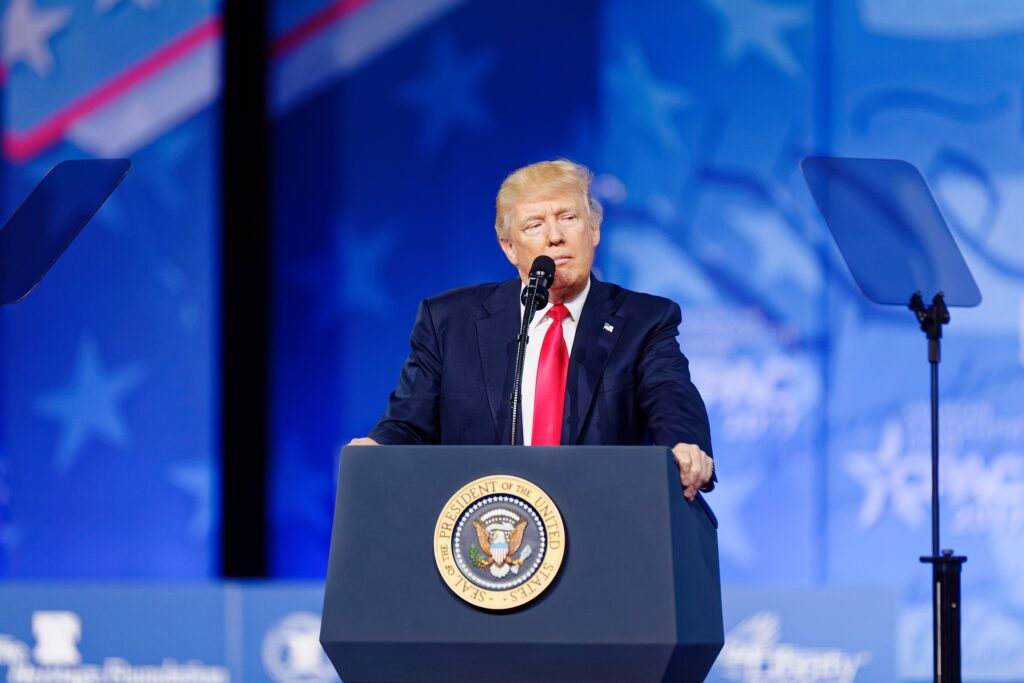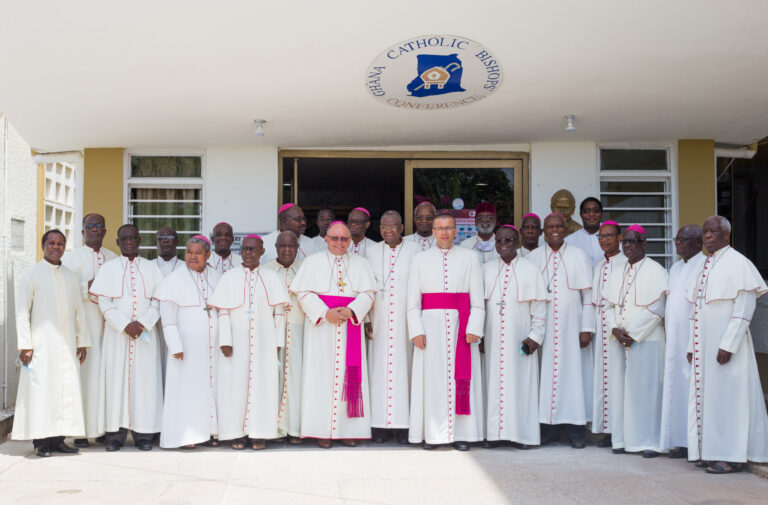President Trump’s Mexico City Policy has slashed an estimated $153 million in U.S. international aid dollars to foreign organizations that perform or promote abortion overseas, a report from the U.S. Government Accountability Office (GAO) has found.
According to the GAO’s report, pro-abortion organizations that eventually refused to comply with the Mexico City Policy were collectively slated to receive $261.5 million in U.S. global health assistance funding. But when these pro-abortion organizations refused in mid-project to comply with the Mexico City Policy, they collectively lost an estimated $153 million in U.S. government funding.
The remaining $108 million dollars that the pro-abortion organizations received are funds the pro-abortion organizations had already been awarded by the U.S. government before the new implementing guidelines for the Trump Mexico City Policy went into effect in May of 2017.
The $153 million dollars cut to non-complying organizations only includes funding pro-abortion organizations lost mid-project, however, and does not include new grants and projects pro-abortion NGOs lost access to as a result of the Mexico City Policy.
The vast majority of the funding cuts fell on two international NGOs notorious for providing millions abortions worldwide: the International Planned Parenthood Federation (IPPF) and Marie Stopes International (MSI).
According to the GAO’s report, IPPF lost access to $54.6 million in planned U.S. global health funding from USAID and MSI lost access to $24.7 million in funding. In addition, 26 U.S. global health sub-awards were cancelled for IPPF and MSI affiliates.
IPPF and MSI are leading international NGO providers of abortion in the developing world. According to IPPF’s Annual Performance Report, IPPF affiliates worldwide performed nearly 1.4 million abortions in 2018. MSI’s Global Impact Report reveals that MSI affiliates collectively performed over 4.8 million abortion and “post-abortion care” services in 2018.
The funding cuts to IPPF and MSI are due to President Trump’s Mexico City Policy. The Mexico City Policy prohibits U.S. global health assistance from funding foreign non-governmental organizations (NGOs) that perform or actively promote abortion as a method of family planning in foreign countries.
The Mexico City Policy dates back to 1984 when the Reagan administration declared at the International Conference on Population in Mexico City that the United States would “no longer contribute to separate nongovernmental organizations which perform or actively promote abortion as a method of family planning in other nations.”
Since then, the Mexico City Policy has been enforced under Republican-controlled administrations and rescinded under Democrat-controlled ones. Under the Trump administration, the Mexico City Policy has been renamed the Protecting Life in Global Health Assistance (PLGHA) Policy.
When President Trump reinstated the Mexico City Policy on January 23, 2017 as one of his first acts as president, the policy was significantly expanded. While previous versions of the Mexico City Policy under prior administrations only applied to U.S. foreign family planning assistance, the Trump Mexico City Policy was made applicable to all U.S. global health assistance “to the extent allowable by law.” And while all previous versions of the Mexico City Policy only applied to funding awarded though the United States Agency for International Development (USAID) (and under the Second Bush administration, through the State Department as well), the Trump Mexico City Policy was made applicable to all relevant funding furnished by all departments and agencies of the U.S. government.
To illustrate what the Trump Mexico City Policy expansion means for the U.S. foreign aid landscape, U.S. Congressional appropriations for foreign family planning assistance totaled about $560 million in 2018. This is the portion of U.S. aid the old Mexico City Policy would have applied to. By contrast, the Trump Mexico City Policy applies to all global health assistance. U.S. Congressional appropriations for the Global Health Programs (GHP) fund in 2018 was about $8.7 billion in 2018 and it is roughly this area of funding that PLGHA applies to.
When the implementing guidelines for PLGHA first went into effect in May 2017, organizations receiving new U.S. global health grants were required to agree that they will not perform or promote abortion in foreign countries with funding derived from any source. For the hundreds of global health projects already in progress at the time the PLGHA policy went into effect, foreign NGOs were given the option of either complying with the policy or terminating their award when their awards were added new funding.
Democrats have long decried the Mexico City Policy for cutting funding to foreign organizations that perform abortions or that advocate for abortion, threatening that funding cuts to these organizations would lead to cataclysmic consequences for global health programs in developing countries.
Yet, according to the GAO’s recent report, only a very small percentage of global health awards were impacted by PLGHA. Out of the 1,309 global health awards active from May 2017 (when PLGHA went into effect) until September 2018 (the cut-off date for the GAO’s audit), only 54 awards were terminated due to pro-abortion organizations’ refusal to comply with the PLGHA policy.
The GAO found that, as of September 2018, the U.S. government had slated $28.7 billion in planned funding for global health projects. Of this, the GAO estimates that only about $12.3 billion in global health funding will be subject to the terms and restrictions of the PLGHA policy after September 2018. And out of the $12.3 billion in funding subject to PLGHA, only an estimated $153 million in planned funding has been cancelled due to pro-abortion organizations refusing to comply with the PLGHA policy.
This means that as of September 2018, PLGHA has only impacted about 1% of all U.S. global health assistance. But since PLGHA has been applied to all new global health grants since September 2018, the percentage of all global health funds impacted by the policy today are likely far less than 1%.
Of the small percentage of global health projects impacted by PLGHA, the majority of them have affected only IPPF, MSI, and their affiliates. Of the 54 global health awards terminated due to organizations refusing to comply with PLGHA, 28 of them were awards for either IPPF, MSI, or one of their affiliates. And of the $261.5 million in planned funding slated for organizations that eventually refused compliance with PLGHA, $192 million or 73% was planned funding for IPPF, MSI, or one of their affiliates. The GAO’s report did not mention how much of this $192 million in planned funding was ultimately cut to IPPF and MSI affiliates.
Moreover, U.S. government departments and agencies involved with furnishing global health assistance are free to reprogram any cancelled funding to other organizations that will carry out the U.S. government’s global health objectives without promoting abortion. The GAO’s report, however, did not look into whether cancelled funds were reprogrammed to other organizations.
The GAO’s report was commissioned by pro-abortion politicians in Congress in an attempt to smear the Mexico City Policy by trying to show that the policy has adversely affected U.S. global health programs in developing countries. The GAO’s report was commissioned by Sen. Shaheen (D-NH), Rep. Engel (D-NY 16th), Sen. Blumenthal (D-CT), Sen. Collins (R-ME), Sen. Murkowski (R-AK), Sen. Murray (D-WA), Rep. Bera (D-CA 7th), Rep. DeGette (D-CO 1st), Rep. Lee (D-CA 13th), Rep. Lowey (D-NY 17th), and Rep. Speier (D-CA 14th).
However, as evident from the GAO’s report, PLGHA has not adversely impacted the U.S. government’s global health objectives. Only a small percentage of organizations implementing global health projects have refused to comply with the policy. Only a small percentage of global health assistance has been cancelled as a result of the policy. And of the small percentage global health funding cancelled due to the policy, the vast majority of funding cuts have only impacted two organizations—organizations which are clearly involved in performing and promoting abortion in foreign countries.
According to a recent Marist/Knight of Columbus survey, 76% of Americans either oppose or strongly oppose the U.S. government using tax dollars to fund organizations like IPPF and MSI that perform or promote abortion abroad.
Rather than placing the Mexico City Policy in a bad light, the GAO report in fact underscores how the expanded PLGHA policy under President Trump has successfully blocked millions of taxpayer dollars from flowing to foreign organizations involved in abortion-related activities.











